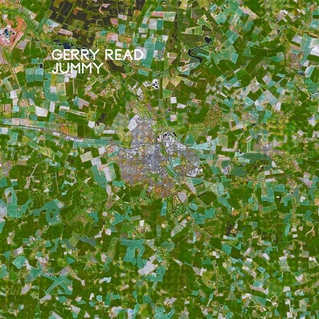The announcement of a debut album by Gerry Read came as no surprise, considering his flurry of activity in the last couple of years: 12" releases on Delsin, 2nd Drop, Dark Arx and Ramp Recordings sublabel Fourth Wave (including three EPs on the latter in 2011 alone) that dabbled in dub and
garage before seeming to settle on house. It’s admittedly been hard not to wonder whether his dishevelled, agitated approach would translate successfully to a full-length. Read has knocked out enough dance music to fill whole label schedules, but his prolific and eclectic approach seems to strain against a noticeably low boredom threshold – not something you’d think would be conducive to producing a focused album. Thankfully, though there’s still plenty of hyperactive meandering in Jummy, a newfound attention to spaciousness and pacing has resulted in a surprisingly coherent work.
Read has so far avoided settling on a signature sound, with an
output that’s reliably antithetical to scene trends. Nevertheless, if there is a typical Read trait, it’s a thick, Dickensian miasma that swarms over everything in Jummy. An urgent synth stab in opener ‘Four Miles’ crescendos amid showers of noise and acid rain, scummy filters cloak everything, and percussion emerges into clarity for only the briefest of moments before retreating into the soup. It’s an impressionistic teaser before the real meat of the album; for all its dirty textures, Jummy is packed with serious dancefloor cuts.
A disembodied, looped vocal snatch is set against a rapturous refrain in ‘Evidence’. Each element has its turn rising from the broth to lead the track, culminating in a bony hi-hat thwack. It never really peaks, but it’s so soulful that it doesn’t matter. Read has a wicked way with a sample: in the deeply funky ‘Be Pushin (She)’, the vocal is insistently looped, harmonised, faded and muted, the kick primal. ‘Moving Forward’ falls just short of slipping into a deep groove, its insistent percussion rising from stifled vocal samples and waves of hiss and crackle, half-obscured by sludgy filters. It’s this tantalising tease-and-reveal quality, the prolonged attacks and fluctuating dynamics, that make Jummy the stuff of brilliance.
There’s even an element of arrogance to Read’s breakdowns, the schadenfreude of tormenting a dancefloor he knows to be at his mercy. It’s club music, but it feels abstracted, informed more by crate-digging than by actually frequenting clubs. ‘Let’s Make it Deeper”s soulful groove surges out of hazy atmospheres with reassuring fatness; sustained to breaking point, it disintegrates before reaching a climax, the kick smouldering away. The funked-up bassline of ‘Gibbon,’ with its Mr Fingers overtones, might just be the catchiest thing on Jummy. But Read revels in the unexpected, so the submerged keys take such a backseat as to seem incidental, while the sound of a shaker is dramatically amplified and reverbed, and metallic beats skitter over the top like an afterthought.
Tracks like ‘Idiot’ can feel more like sketches than finished works. Even so, ‘Purple Fire’s straggled vocal and off-key synths have all the dissociative impact of daylight after a three day-and-night sweaty club marathon. ‘Sidecar”s found sound collage drenches you in crackling static and decaying hiss, a fitting close to an album that on the one hand is steeped in vintage influence and yet on the other dictates its own terms completely.
Jummy, thankfully, doesn’t sound quite like anything else out there. While a typical album structure of intro, interlude and outro reins in the high-entropy, lo-fi production, it thrives on imperfection. In a sea of endlessly laboured, aseptic releases, Read’s fast-and-loose production is a welcome injection of instinct that reveals a real man behind the machine. Mangled and volatile and filthy though it may be, Jummy is deeply refreshing.


